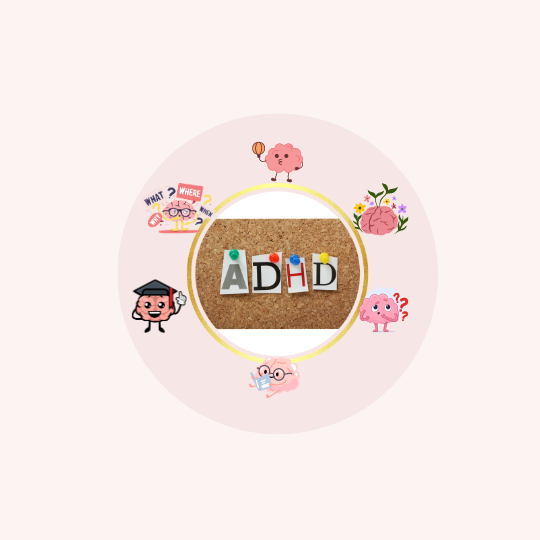
1. Understand ADHD: Knowledge is Power
The first step in supporting your child is to understand what ADHD is—and what it isn’t. ADHD is a neurodevelopmental disorder that affects attention, impulse control, and activity levels. It is not due to laziness, bad parenting, or a lack of discipline. Children with ADHD often have difficulties focusing, organizing tasks, and following through on instructions. Knowing that your child is struggling with something beyond their control can help foster patience and empathy.
Key Point: Educate yourself about ADHD by reading reliable sources, talking to professionals, and joining support groups. The more you know, the better equipped you’ll be to help your child.
2. Focus on Positive Reinforcement
Children with ADHD often receive more negative feedback than other children. Over time, this can lead to low self-esteem and feelings of inadequacy. Positive reinforcement can help counteract this. Celebrate your child’s successes, no matter how small, and focus on their strengths. Whether they complete their homework or manage to sit through a family meal, acknowledge their efforts.
How to Use Positive Reinforcement:
- Praise specific behaviors (“I’m so proud of how you stayed focused while finishing your project!”).
- Create a reward system (stickers, tokens, or privileges for completed tasks or good behavior).
- Encourage hobbies and activities where they excel (sports, arts, music) to build self-confidence.
3. Establish Clear Routines and Structure
Children with ADHD thrive in environments where there are consistent routines. Knowing what to expect reduces anxiety and helps them manage their tasks more effectively. Set a daily schedule for meals, homework, chores, and bedtime. Be clear about expectations and use visual aids, like charts or timers, to keep them on track.
Tip: Break down tasks into smaller, manageable steps. For example, instead of saying, “Clean your room,” break it into smaller tasks: “Pick up your toys,” “Put clothes in the hamper,” and “Make your bed.”
4. Set Realistic Expectations
Your child with ADHD may struggle with things that come easily to other children. It’s important to set realistic expectations based on their individual needs and abilities. Be flexible and recognise that some days will be harder than others.
- Adjust homework time based on their attention span (shorter, frequent breaks).
- Limit distractions (designate a quiet, organised space for homework or tasks).
- Use tools like planners, apps, or visual reminders to help them stay organised.
5. Teach Emotional Regulation and Social Skills
Children with ADHD often struggle with emotional outbursts or impulsive behavior, which can impact their social relationships. Teaching them how to manage their emotions and interact with peers is essential. Model calm behavior, and help them practice strategies to manage frustration, like deep breathing or counting to ten.
Ways to Support Emotional and Social Skills:
- Role-play social scenarios to teach appropriate behavior.
- Encourage participation in structured group activities to build social skills.
- Work with a therapist or counselor if your child struggles with emotional regulation.
6. Communicate with Teachers and School Staff
Close collaboration with your child’s school is key to their academic success. Talk to your child’s teachers about their specific needs. This ensures your child receives accommodations, such as extended time on tests, reduced homework loads, or a quiet place to work.
Questions to Ask Teachers:
- How can we support each other in managing my child’s ADHD symptoms in the classroom?
- What strategies have you found effective in keeping my child focused?
- What accommodations can be made to help my child succeed academically?
7. Practice Patience and Self-Care
Parenting a child with ADHD can be exhausting and overwhelming at times. It’s easy to get caught up in their needs and forget about your own well-being. Remember, your ability to remain calm and supportive is vital, so taking care of your own physical and mental health is crucial.
Self-Care Tips for Parents:
- Take time for yourself (even if it’s just a few minutes a day).
- Connect with other parents who have children with ADHD to share experiences and advice.
- Consider professional support, like counseling or joining a support group, to manage stress.
8. Stay Positive and Flexible
Raising a child with ADHD requires patience, flexibility, and perseverance. There will be good days and tough days, but try to focus on progress rather than perfection. Celebrate small victories and remember that every step forward is a success.
Keep in Mind: ADHD is not something your child can “outgrow,” but with the right support, children with ADHD can learn to manage their symptoms, develop resilience, and lead fulfilling lives.
Conclusion: Building a Strong Foundation
Supporting a child with ADHD is a learning process for both you and your child. It requires love, patience, and adaptability, but the rewards are immense. By understanding ADHD, creating a structured environment, fostering emotional and social skills, and staying involved in your child’s education and well-being, you can help them build a strong foundation for the future.Ultimately, your child’s ADHD does not define who they are—it is just one part of their unique, vibrant personality. With your support, they can grow into confident, capable individuals who will shine in their own way.

